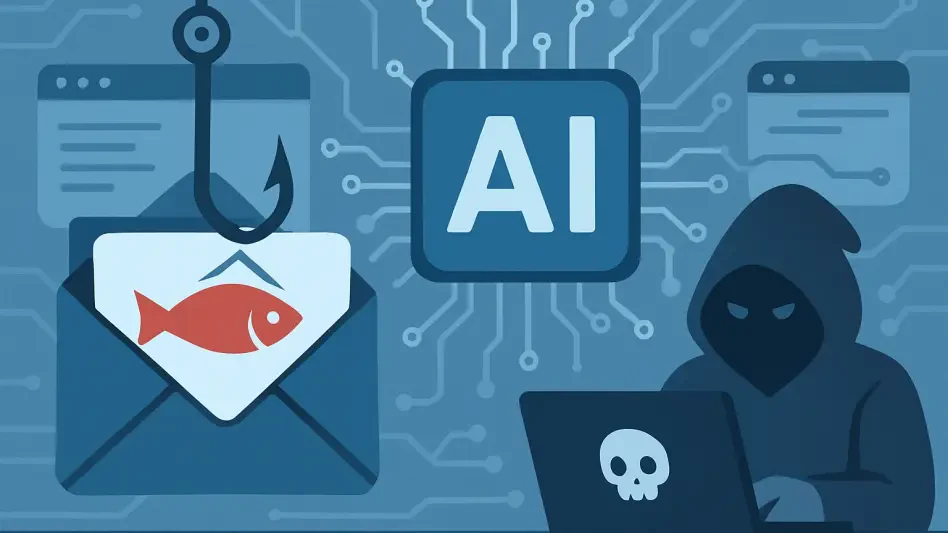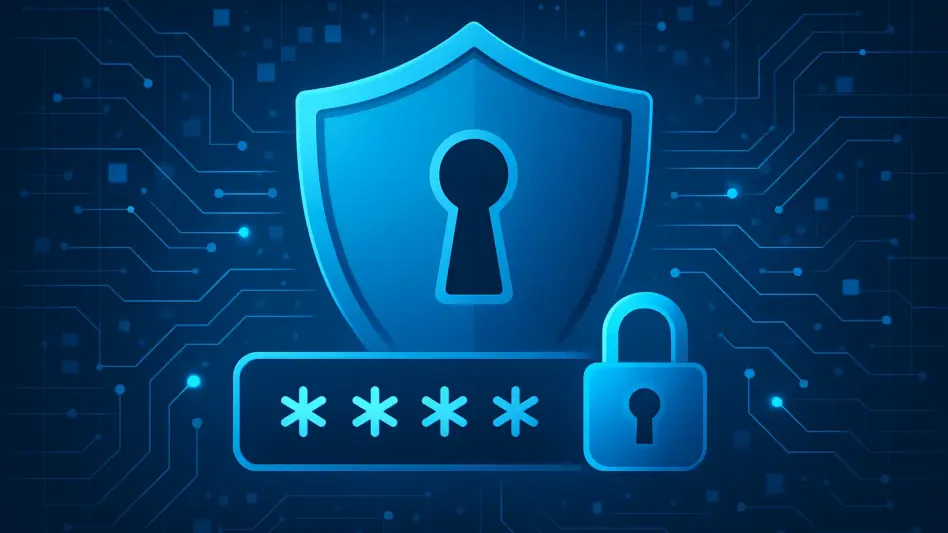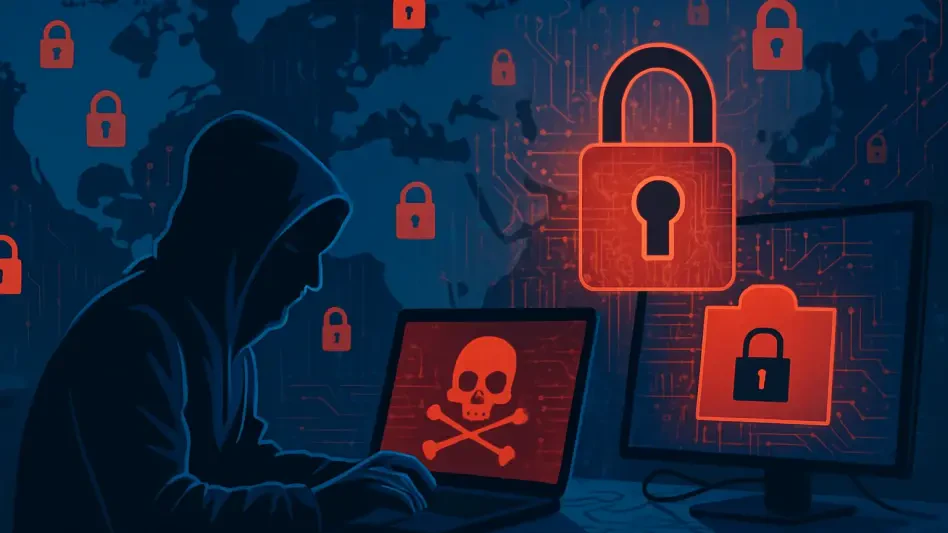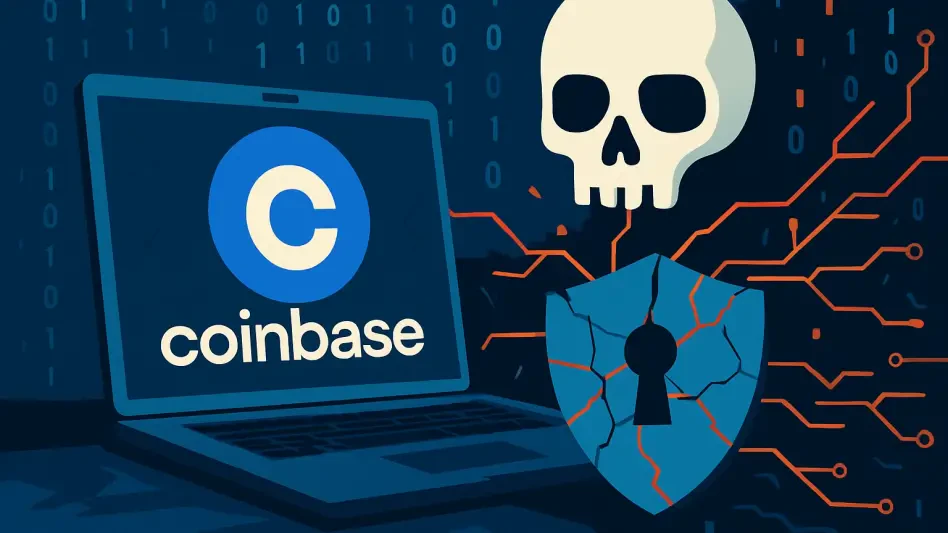The cybersecurity industry is grappling with a significant skills gap, which poses a serious threat to organizational security. As cyber threats become more sophisticated, the demand for skilled professionals continues to outstrip supply, putting businesses and government bodies in a precarious position. The challenges presented by this disparity are extensive, impacting every sector and necessitating urgent solutions. This article endeavors to explore the multifaceted crises and offer viable strategies to mitigate the problem through upskilling, outsourcing, and education.
The Impact of the Cyberskills Gap
The shortage of cybersecurity professionals is a pressing issue that directly affects industries across the board, leading to both reputational and financial damage from successful cyber attacks. As digital transformation accelerates, the skills gap only widens, necessitating constantly evolving skill sets from cybersecurity professionals. This rapid pace exacerbates the challenges faced by organizations as they struggle to safeguard their systems and data in an environment where cyber threats are becoming increasingly sophisticated and frequent.
Moreover, the stress placed on existing cybersecurity professionals due to the skills gap is immense. Overburdened with prolonged hours and high workloads, these professionals often face high levels of stress, contributing to high staff turnover. Burnout among cybersecurity professionals not only hampers their performance but also leaves critical systems exposed, further compounding the risk to organizations. It is clear that measures must be taken to bolster the cybersecurity workforce, ensuring it can cope with the demands of the evolving threat landscape and maintain robust defenses.
Addressing the cyberskills gap requires a comprehensive approach. Organizations must develop strategies that consider both immediate and long-term solutions, ranging from practical training for existing employees to broader educational initiatives. By focusing on a multifaceted approach that includes upskilling current staff, outsourcing specific tasks, and investing in the education of future professionals, the cybersecurity industry can work towards closing this skills gap and enhancing security across all sectors.
Upskilling: A Long-Term Solution
Mark Bowling, Chief Risk, Security, and Information Security Officer at ExtraHop, advocates for internal upskilling programs as a key strategy to address the skills shortage. These programs focus on training existing employees who possess strong soft skills and a propensity for learning, enabling them to develop the necessary technical expertise required for cybersecurity roles. While this approach may not provide an immediate solution, persistent commitment from companies to nurture and develop internal talent can form a long-term strategy to bridge the skills gap and create a more resilient workforce.
Amanda Finch, CEO at the Chartered Institute of Information Security, emphasizes the importance of non-technical skills, such as communication, management, analysis, and problem-solving, which are often undervalued in the tech industry. These transferable skills can be found across various fields and, when combined with technical training, can significantly enhance the capabilities of cybersecurity professionals. Finch suggests that organizations should take proactive measures to identify and upskill employees with these valuable attributes, thereby addressing the growing demand for cybersecurity expertise.
Incorporating hands-on learning experiences into recruitment and development frameworks is another critical aspect of successful upskilling programs. Practical training methods, such as crisis simulations and gamified learning based on real-world scenarios, can engage employees and provide them with the practical skills needed to respond to cyber threats effectively. By emphasizing both technical and soft skills in their training programs, organizations can better prepare their workforce to handle evolving cyber threats and create a more resilient defense system.
Outsourcing: An Immediate Solution for SMBs
For many small and medium-sized businesses (SMBs), upskilling may not be a feasible immediate solution due to limited workforce size and resources. As Dave Atkinson, Founder and CEO of SenseOn, highlights, SMBs experience a more acute impact from the skills gap as they cannot compete financially with larger enterprises that offer more attractive incentive packages to skilled professionals. This disparity leaves SMBs particularly vulnerable to cyber threats, with their often understaffed security teams struggling to fend off potential attacks, leading to potential data breaches and operational disruptions.
Charlotte Web, Operations Director at Hyve Managed Hosting, asserts that Managed Service Providers (MSPs) are integral in bridging the skills gap for SMBs. MSPs offer specialized expertise and continuous monitoring of potential threats, serving as a valuable resource for businesses unable to maintain a robust in-house cybersecurity team. Such partnerships have proven instrumental, particularly in highly data-sensitive sectors like healthcare and finance, and dynamic industries such as e-commerce. By leveraging the capabilities of MSPs, SMBs can enhance their cybersecurity posture and mitigate the risks associated with the cyberskills gap.
Outsourcing cybersecurity tasks to MSPs provides an immediate solution for SMBs, allowing them to focus on their core business operations while ensuring their systems and data are protected. This approach not only alleviates the pressure on limited internal resources but also ensures access to the latest security technologies and expert knowledge. By collaborating with MSPs, SMBs can overcome the challenges posed by the skills gap and safeguard their operations against growing cyber threats.
Investing in Early Education
Educational initiatives play a crucial role in addressing the cyberskills gap long-term. Jill Knesek, Chief Security Officer at BlackLine, highlights that the fundamental issue lies within the educational pipeline. By promoting cybersecurity careers starting from high school or even earlier, we can create a consistent flow of talent into the field. Early education and positive messaging around the diverse career paths available in cybersecurity can engage young minds and inspire them to pursue careers in the industry, ensuring a steady supply of skilled professionals in the future.
Deepa Kuppuswamy, Information Security Architect at ManageEngine, emphasizes the importance of creating broader entry routes through apprenticeships and workplace training programs, particularly targeting diverse and non-traditional backgrounds. Inclusivity enriches the cybersecurity sector with varied perspectives, which are critical for innovative problem-solving and effective threat response. By providing entry-level opportunities and career pathways for individuals from different walks of life, we can cultivate a more diverse and capable cybersecurity workforce to meet the growing demands of the industry.
Educational establishments are encouraged to embed core digital and security literacy in their curriculum, equipping students with essential skills from an early age. Meanwhile, businesses should actively support the ongoing development of their staff by offering opportunities for advanced certifications and hands-on training. This collaboration between educational institutions and the industry is vital in nurturing a robust talent pipeline and ensuring the cybersecurity workforce remains adept and ready to tackle evolving threats.
Collaboration Between Industry and Education
The cybersecurity industry is currently facing a pressing issue, commonly referred to as the skills gap. This gap poses a significant threat to organizational security, both in the private and public sectors. As cyber threats grow increasingly sophisticated, the demand for skilled cybersecurity professionals is rising sharply. However, the supply of such trained experts is falling short, leaving businesses and government entities vulnerable.
The scale of the problem is broad, impacting various sectors, and underscores the need for immediate, effective solutions. The challenges stemming from this skills shortage are numerous and affect every domain that relies on digital infrastructure. Therefore, it is crucial to address these issues with urgency.
This article aims to delve deeply into the complexities of this skills gap crisis. It explores several viable strategies that could help alleviate the problem. One suggested method is upskilling, which involves providing current employees with the training needed to enhance their cybersecurity knowledge and skills. Another approach is outsourcing, wherein organizations can hire external experts to fill the gap temporarily. Lastly, education plays a key role by preparing the next generation of cybersecurity professionals through targeted academic programs and training courses.
By implementing these strategies, there is potential to make significant progress in closing the skills gap and strengthening overall cybersecurity defenses.







